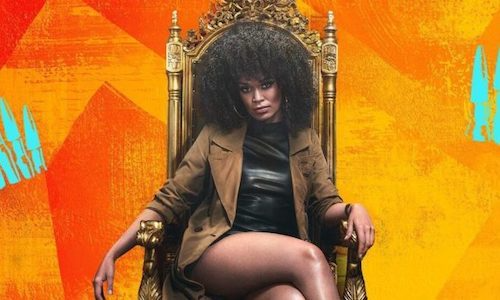Behind-the-Scenes of "Rafiki": An African Erotic Romance
6 months ago
Delve into the behind-the-scenes world of "Rafiki," an African erotic romance that challenges societal norms while celebrating love and identity.
Behind-the-Scenes of "Rafiki": An African Erotic Romance
Exploring Love and Identity in the Heart of Africa
In the landscape of African cinema, "Rafiki" stands out not just for its compelling narrative but for its bold exploration of themes rarely tackled so openly in the region. Directed by Wanuri Kahiu, this erotic romance has stirred both controversy and acclaim, offering a fresh perspective on love and identity.

The Story
"Rafiki," which translates to "friend" in Swahili, tells the story of two young women, Kena and Ziki, who fall in love despite the societal and familial pressures that seek to keep them apart. Set against the vibrant backdrop of Nairobi, Kenya, the film delves into the intense and often dangerous landscape of a same-sex relationship in a conservative society.
Casting and Performances
The casting process for "Rafiki" was meticulous, aiming to find actors who could authentically convey the passion and challenges faced by the characters. Samantha Mugatsia (Kena) and Sheila Munyiva (Ziki) were eventually chosen for their powerful chemistry and ability to portray the nuanced emotions required for their roles. Their performances are raw and heartfelt, capturing the essence of forbidden love with sensitivity and depth.
Creating the Visual Aesthetic
One of the standout features of "Rafiki" is its vibrant visual style. The film’s cinematography, led by Christopher Wessels, uses bold, colorful palettes to reflect the energy and diversity of Nairobi. The contrasting hues of Kena and Ziki’s worlds — Kena’s more muted, practical existence and Ziki’s bright, free-spirited life — are visually striking, emphasizing their differing backgrounds and the beauty of their union.
Behind-the-Scenes Challenges
Bringing "Rafiki" to life was no small feat. The production faced numerous obstacles, including legal battles and societal pushback due to its controversial subject matter. Despite being banned in Kenya initially, the film's team remained steadfast in their vision. Director Wanuri Kahiu fought tirelessly for the film’s release, eventually winning a landmark case that allowed it to be screened in Kenya for seven days, qualifying it for the Oscars.
Intimacy and Sensitivity
The film’s erotic scenes were handled with immense care and professionalism. Intimacy coordinators were brought in to ensure that the actors felt comfortable and respected throughout the shooting process. These scenes are integral to the film, portraying not just physical attraction but the deep emotional connection between Kena and Ziki.
Cultural Impact and Reception
"Rafiki" has made waves internationally, premiering at the Cannes Film Festival and receiving praise for its bold storytelling and artistic merit. The film has sparked important conversations about LGBTQ+ rights and representation in Africa, highlighting the power of cinema to challenge and inspire societal change.
Conclusion
"Rafiki" is more than just a film; it is a statement of love, resilience, and the quest for acceptance. The behind-the-scenes journey of its creation reflects the same themes of struggle and triumph that it portrays on screen. As African cinema continues to grow and diversify, "Rafiki" serves as a beacon of what can be achieved when filmmakers dare to tell the stories that matter most.
For those interested in the intersections of culture, politics, and love, "Rafiki" offers a poignant, beautifully crafted exploration that resonates long after the final scene fades.




